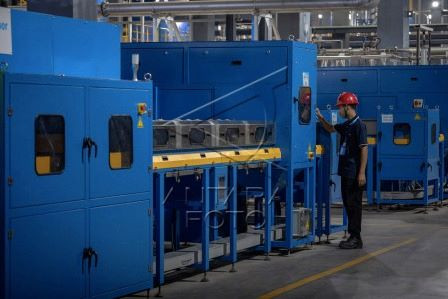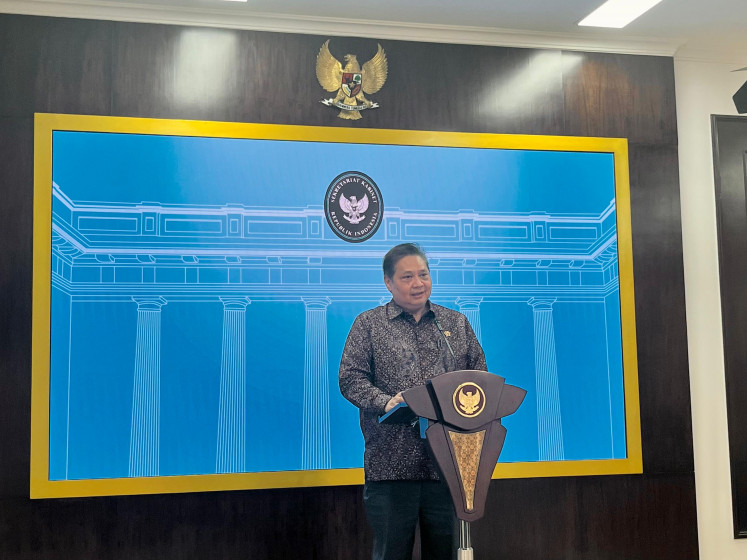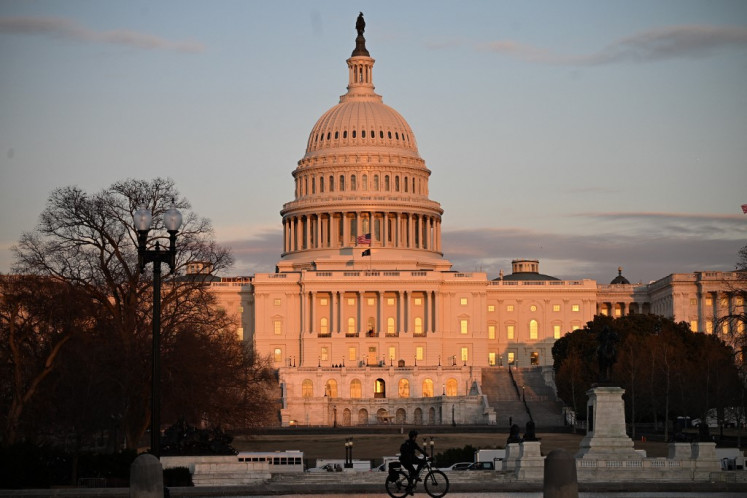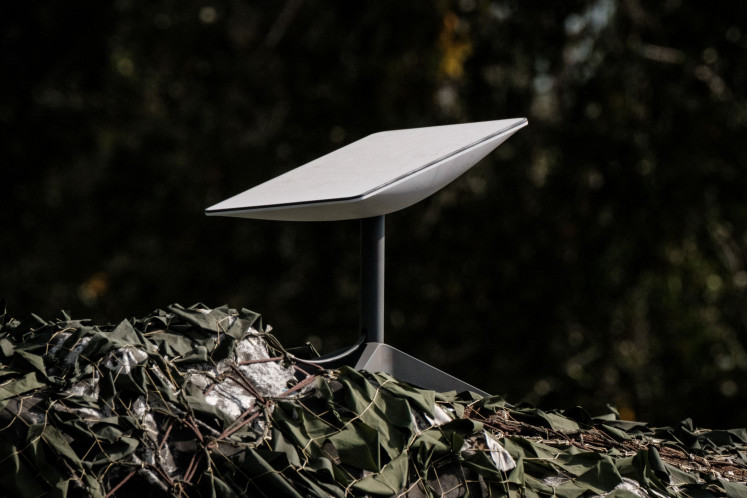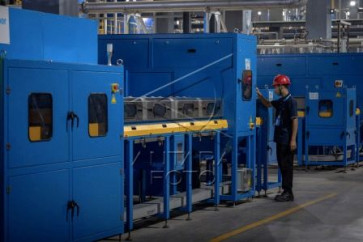Popular Reads
Top Results
Can't find what you're looking for?
View all search resultsPopular Reads
Top Results
Can't find what you're looking for?
View all search resultsRI fires up LFP manufacturing despite lack of lithium reserves
Indonesia is one step closer to its goal of becoming an electric vehicle manufacturing hub after inaugurating its first lithium iron phosphate (LFP) factory earlier this month, but analysts say the country’s heavy reliance on Chinese investment in the industry could complicate efforts to sell the cathode material in Western markets.
Change text size
Gift Premium Articles
to Anyone
I
ndonesia is one step closer to its goal of becoming an electric vehicle manufacturing hub after inaugurating its first lithium iron phosphate (LFP) factory earlier this month, but analysts say the country’s heavy reliance on Chinese investment in the industry could complicate efforts to sell the cathode material in Western markets.
Equipped with ample expertise from their home market, Chinese companies can fill the gaps in Indonesia’s budding EV ecosystem when it comes to LFP technology.
The new plant, which is operated by Chinese-Indonesian consortium PT LBM Energi Baru Indonesia in the Kendal Industrial Park (KIP) in Central Java and cost US$200 million to build, is Indonesia’s first facility for making LFP, a key material in the production of EV batteries of the lithium-ion type.
Ian Satchwell, an adjunct professor at the University of Queensland, said Indonesia, which has no significant lithium reserves itself, may nevertheless establish an LFP manufacturing industry by importing the mineral from other countries, such as Australia, or recycling used lithium-ion batteries.
“LFP output may be absorbed domestically if Indonesia’s battery and EV industries grow as hoped. The balance would likely go to China,” he told The Jakarta Post on Tuesday.
Battery production is expected to remain concentrated in China over the 2024-2026 period as a result of the rising market share of LFP and lithium manganese iron phosphate (LMFP) batteries, according to an Australian government report published in September, despite rising production of lithium nickel manganese cobalt (NMC) batteries outside of China.
The report estimates that Chinese companies will leverage their expertise in LFP batteries to ramp up production of LMFP batteries over the 2024-2026 period, which could deliver similar performance to older lithium-nickel chemistries at a lower cost.

